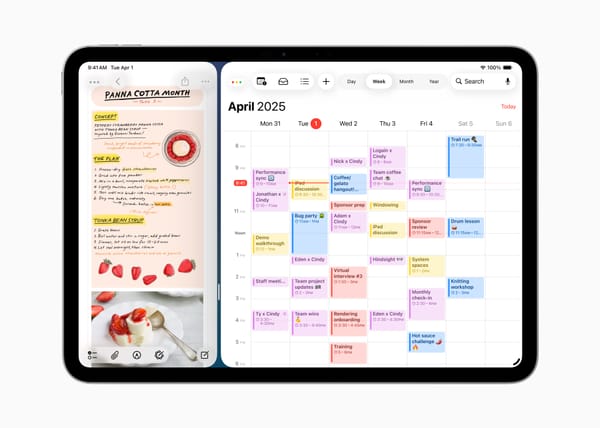Okay, I’ll take sideloading... sort of
In preparation for this seemingly inevitable event, I’m going to discuss my current thoughts about sideloading as both a consumer and a developer.

As governments continue to press on with antitrust litigations against Apple for the App Store and other technologies, the likelihood that sideloading will become a thing on iOS increases. While I still feel that sideloading isn’t the answer to Apple’s problem, I recognize that this is the future that governments will push towards. Apple’s continued lacking of action to address scams on the App Store aren’t helping in this matter.
In preparation for this seemingly inevitable event, I’m going to discuss my current thoughts about sideloading as both a consumer and a developer.
From a consumer’s perspective
As a consumer, I will still heavily gravitate towards the App Store for downloading apps, unless a third party developer has a compelling reason to not exist in the App Store. I enjoy being able to purchase and download apps from a single place on my iDevices and not have to manage multiple sources like I do on the Mac. Likewise, this is an area where Linux excels well for me by adding repository but using the same tool to download software, notwithstanding snaps and flatpaks. If I can streamline my experience to remain this easy, I will do it.
With that said, there are two notable exceptions in which I’d be willing to download from another source:
- If the app is innovative but doesn’t meet App Store Guidelines. FlickType, xCloud and UTM come to mind.
- If the app’s license clashes with the App Store: most notably, open-source software under the GPL license.
Of course, this only scratches the surface, and third party developers may have a very compelling reason for consumers.
However, if third party developers decide to publish their apps elsewhere solely for the any of the following reasons, I’m not downloading:
- You’re doing something sketchy in the background that’s not allowed on the App Store, such as tracking without my consent.
- You just can’t be bothered to put it on the App Store when you are very well able to (this is excluding those that can’t afford the $99/yr to publish).
- You dislike Apple so much to a point where publishing elsewhere is in spite of them.
These reasons come off as either greed, laziness, or a combination of them, and the consumer is left out of the picture. Please, if you plan to go solely the sideloading route, consider your customer and not your wallet. This also applies to web apps, too; I’m not going to use your web app if it doesn’t work in Safari unless you have a compelling reason that isn’t “Safari bad” or “Safari is the new IE”.
From a developer’s perspective
As a developer that loves to make great apps for Apple’s platforms, I plan on sticking to the App Store for distribution. Although the App Review process is arbitrary and can be frustrating, it’s a lot easier for me to make great stuff when someone else takes care of hosting, in-app purchases, and the like. Thus far, I’ve had no major qualms with Apple or the App Review team on the App Store individually. However, if you as a consumer don’t want to touch the App Store (for any given reason) but still want to use my apps, I will try to make them available for sideloading upon request.





